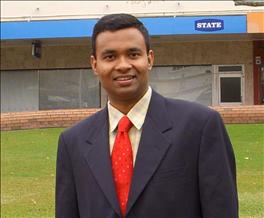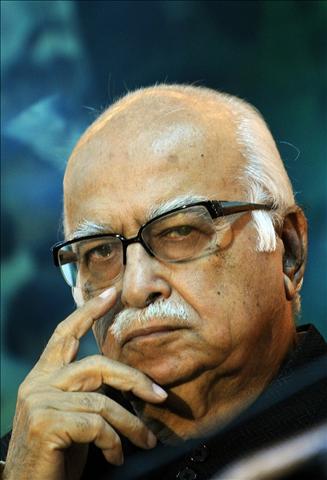 With the Indian Parliament now in its Budget Session, it would be appropriate to examine if the Bharatiya Janata Party (BJP), the main Opposition, will further its electoral chances or squander the opportunity, for which it is famous.
With the Indian Parliament now in its Budget Session, it would be appropriate to examine if the Bharatiya Janata Party (BJP), the main Opposition, will further its electoral chances or squander the opportunity, for which it is famous.
There is no doubt that the BJP is on a juggernaut, especially after winning the state elections held recently in Bihar with its ally, the Janata Dal (United) by nearly fourth-fifth majority. The Congress led United Progressive Government had boosted BJP’s morale by its indifference to essential governance, in addition to facing corruption charges against its cabinet ministers who were forced to resign.
Failed Strategy
 The BJP has aggressive means which gets manifested either in the halls of the Parliament or at its seasonal processions, such as the ‘Ekta Yatra,’ during which it hoisted India’s National flag in Jammu & Kashmir Capital Srinagar, on the eve of Republic Day (January 26). Lok Sabha and Rajya Sabha (Lower and Upper Houses) Opposition Leaders Sushma Swaraj and Arun Jaitely, and BJP President were arrested and detained.
The BJP has aggressive means which gets manifested either in the halls of the Parliament or at its seasonal processions, such as the ‘Ekta Yatra,’ during which it hoisted India’s National flag in Jammu & Kashmir Capital Srinagar, on the eve of Republic Day (January 26). Lok Sabha and Rajya Sabha (Lower and Upper Houses) Opposition Leaders Sushma Swaraj and Arun Jaitely, and BJP President were arrested and detained.
The well-orchestrated show was a success as tactics and failure as strategy.
Any political party needs not only tacticians to organise efficient rallies but also leaders who can effectively communicate the overall political objective. The BJP unfortunately has been a failure on this count.
The Party failed to grasp the public mood and come to terms with the defeat it suffered in the past two elections (2004 and 2009). In between, it did well in the state elections in Karnataka, Madhya Pradesh and Gujarat.
But overall, the Party has failed because of the ‘Peter Principle’ in action.
Dismal Failure
In run up to the 2004 general elections, the BJP, under the leadership of then Prime Minister Atal Bihari Vajpayee was a frontrunner but lost its way to the Congress.
Similarly, in 2009, despite a change of guard, with Lal Krishna Advani being named the Prime Ministerial candidate, it failed to learn the mistakes of the past.
It is clear that BJP’s aggressive posture after few wins in the state elections and the political capital gained from the Congress’s mistakes irritated a majority of the voters. It was a simple lesson that the Party failed to understand.
But the Party is politically reactive when it comes to issues concerning people. This worked well in state elections where the people, disillusioned with the Ruling Party, choose the Opposition for a change or continue with the incumbent Party, if it performed well, as was the case in Gujarat, Madhya Pradesh and Bihar.
As it often happens, political parties fail to see the difference between state elections and national elections.
People’s Power
Let us put it constitutionally. The Executive power in a majority of the democracies in the world is apolitical. An average citizen sees a Prime Minister as non-partisan and expects the incumbent to behave more in tune with the high office rather than as a party politician. Simply put, an average Indian will not be able to imagine a Prime Ministerial candidate wielding a sword, getting arrested or even shouting at the top of his voice in front of TV cameras.
People in any part of world will accept a leader who can articulate views with decency. This was the reason why India had Indira Gandhi as Prime Minister, who consoled others crying at the funeral of her son Sanjay, who died in a plane crash in June 1980. BJP leaders lack this political maturity. They were perhaps of the view that the ‘protest politics’ practiced by their erstwhile leader Jaya Prakash Narayan (to a measure of success) would be effective. But it would not wash today with the growing Indian middle-class professionals.
The BJP was a mild entity under Vajpayee, who provided a centre-right government. His departure from politics created a space for activists and their own version of jingoism and ideological misinterpretation of ‘Hindutva.’
There is a clear distinction between jingoism, Hindutva and national interest. Young Indian voters are comfortable with the last factor and it time the BJP taped them.
Otherwise, it will risk of being thrown into oblivion in the 2014 general election.
Balaji Chandramohan is Editor, Asia for World Security Network and Correspondent for World News Forecast. Email: mohanbalaji2003@gmail.com






